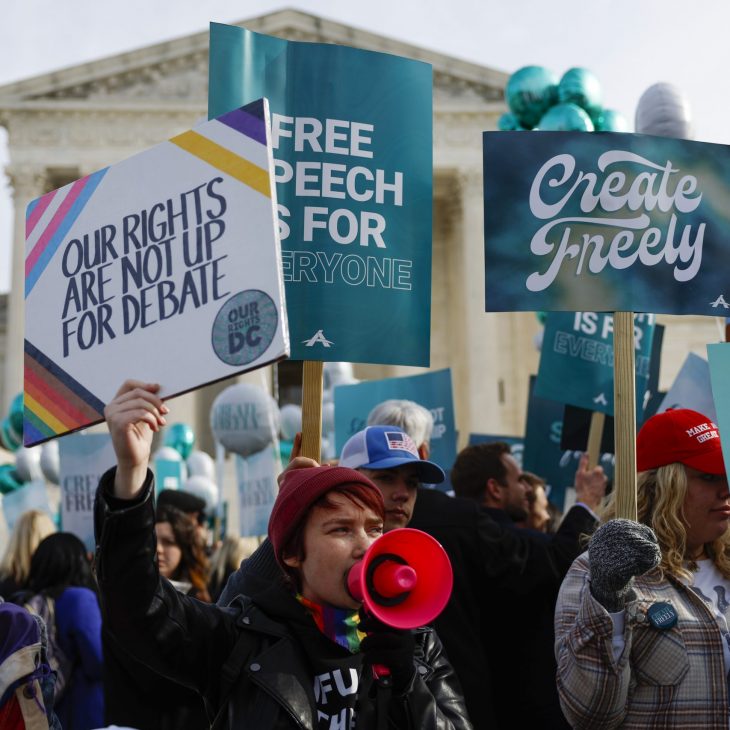Perspective: Will the Supreme Court Put Pluralism Back on the Table?
January 10, 2023

Americans have disagreed over issues of deep public importance since the founding of the country.
Whether it was debates between loyalists and patriots, Catholics and Protestants, Democrats and Republicans, American history is replete with stark differences of opinion in the public square. But for all our disagreements, we have always remained committed to the idea that the government should not force our neighbors to think, believe, or worship in ways that violate their conscience.
At Becket, we defend people of all faiths to live out their beliefs in the public square without threat of government punishment. Over the years, we have represented a diverse group of believers — like Sikhs who wish to maintain their articles of faith and serve in the military, Apaches defending their sacred sites from government land grabs, and a Santeria priest that wanted to continue performing religious rituals in his home.
Recently, we filed a friend-of-the-court brief at the Supreme Court in a case called 303 Creative LLC v. Elenis. The owner of 303 Creative is Lorie Smith, a web designer from Colorado who wants to create wedding websites in accordance with her faith. However, the state made that impossible. Smith would be in violation of Colorado’s anti-discrimination laws because she cannot in good faith celebrate same-sex wedding ceremonies.
To many observers, the 303 Creative case is just the latest iteration in the long-running clash between LGBTQ rights and religion. Media headlines have portrayed the case as a zero-sum game; either religious individuals can operate their businesses and ministries in accordance with their beliefs, or LGBTQ individuals can access the services they need.
One problem with this view is that it mischaracterizes the facts of the case. Colorado admits that Smith is willing to work with all people, regardless of a person’s race, creed, sexual orientation, and gender. Indeed, the lower court judges acknowledged that she would willingly create a website celebrating a gay client’s birthday. And had she refused to do so, there is no question that. Smith would have violated Colorado’s anti-discrimination law.
But the more central problem with this framing is that it fails to recognize what is truly at stake: All Americans, including Americans who are part of minority groups, have a right to have different beliefs without being threatened by the government to change them. That not only protects people like Lorie Smith, but everyone else who doesn’t fall in line with what the majority says. In this case, the Supreme Court has the opportunity to put pluralism back on the table, to lead by example by showing all Americans what respecting people of good will looks like. Dissent from society’s prevailing norms and beliefs should not be outlawed or prosecuted by government entities. That goes for the fashion designer who didn’t want to create outfits for Melania Trump because of her political beliefs, or the rock band that wanted to keep its name that the federal government considered disparaging to use. It also applies to any number of realistic hypotheticals: an African American singer who declines to perform the National Anthem for a white supremacist rally, a Jewish photographer that does not want to celebrate non-Jewish weddings, or a Muslim filmmaker who refuses to create films promoting Scientology.
The ability to dissent is as American as apple pie; we have always had disagreements on issues of cultural, political, and theological significance. But that does not mean we should ever let the government force uniformity of belief. Pluralism means little if there are no differences. True diversity is defeated when government compels conformity. The Supreme Court should rule in favor of Lorie Smith and uphold the fundamental right of every American to follow their conscience.
Daniel Chen is counsel at the Becket Fund for Religious Liberty.
Share
Related Articles
American Civic Life
Higher Education
News
Can a Christian Flag Fly at City Hall? The Supreme Court Will Have to Decide



